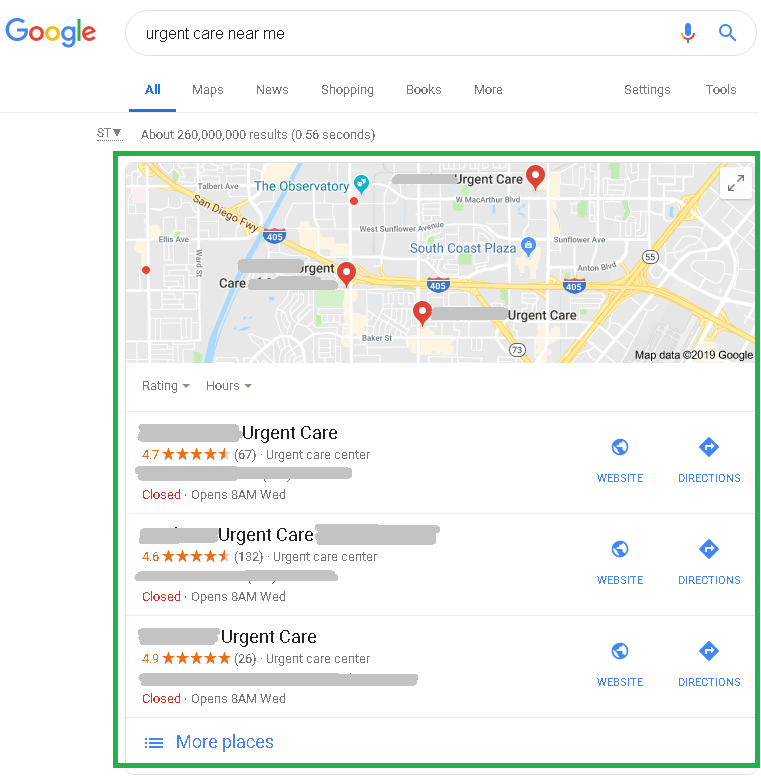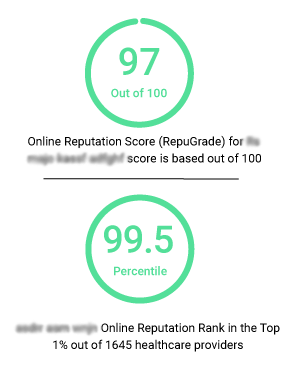How Do Patients Find Doctors Online Searches

Patients today have more choices than ever when it comes to selecting a healthcare provider. Legislation, shifting technology, and new methods for patient acquisition and retention have forever changed how patients previously chose their healthcare providers. The internet has been the biggest disruptor of all because it has decentralized information and made it accessible to everyone.
The evidence is visible in a report by KRC Research that reveals how 81% of Americans are searching for health-related information online. Within this segment, 1 out of 5 are active weekly! Other reports, like the one from Software Advice, show how specific online channels like patient review sites, are empowering patients to evaluate a list of physicians before finally selecting one.
How Do Patients Perform ’Doctors Search’ Online?
When people do not feel well, they want to understand what’s wrong. This is when a patient prospect enters the realization stage of his/her patient journey. The next step, traditionally, would be to visit a doctor to receive a diagnosis and recommended health treatment for his or her condition. However, things have changed with the introduction of the internet and other digital channels.
Patients today do not schedule an appointment as their first step. First, they consult “Dr. Google” and search online about their health condition. Then, while searching on Google, patients tend to book an appointment with one of the several providers they first see at the top of the search results page.
In most cases, people do not know the details of their specific ailment, so they will proceed to research their symptoms online. They will type in their question through a search engine or ask their voice assistant a question such as, “Why am I suddenly feeling cold?” or “Why am I experiencing heartburn?” After hitting search, he or she will look through a few of the search engine results to learn more about their condition.
In other scenarios, such as when the person can already identify his or her condition (like in the case of chronic disease), they will likely not waste their time searching online for symptoms. Instead, they will search directly for potential providers. Example keywords that they may search are “Best OB/GYN provider nearby” and “Urgent care near me,” etc. In these cases, the patient journey for these prospective patients directly starts with the exploration stage.
Listed below are factors that will affect the search engine results page when prospective patients are searching online for a doctor:
- Domain Authority: A Domain Authority score will range from one to 100, with higher scores corresponding to a greater ability to rank on search results. A large contribution to your score will be based on the number of quality (i.e., relevant, authoritative, and credible) domains from your industry that are linking to your website.
- Geographic Location: The relevance of the location from where your patients are searching on Google and the proximity of your business to that location.
- Behavioral Signals: How prospective patients are behaving with your site: Are they clicking frequently on your link from Google searches to land on your website? Are they calling after clicking on the “Tap to Call” button on your site from their mobile device? Actions like these send positive behavioral signals to Google.
- NAP Consistency: Are the name, address, phone number (NAP) of your business consistent across major online business listing and directory sites? Are they the exact same as given on your website page and footer? Search engines get confused when they find inconsistent NAPs, and may lower your site’s ranking as a result.
- Patient Reviews: Like patients, search engines also consider patient reviews as important as word-of-mouth and personal recommendations. Check if your practice or provider profiles across major review sites, including Google My Business, consistently generate enough patient reviews. Monitoring those reviews and timely responding to them help send positive signals to search engines.
- Social Signals: Are you actively engaging the audience through your social media business accounts or pages? With frequent engagement, more positive signals are sent to Google.
When most or all of these factors or signals are in your favor, you will have a higher chance of getting ranked for relevant online searches. From there, these prospects will typically go through the following process to narrow down the list of providers to choose from:
- They will quickly eliminate providers that are not considered to be worthy. For example, providers with poor reviews will not be considered.
- They will confirm whether or not that provider accepts their insurance (if they have one).
- They will visit providers’ websites to learn more about the provider and their services.
- They will check providers’ reviews on a review site they trust. Typical review sites for healthcare providers include Google, HealthGrades, Vitals, RateMDs, Facebook, and Yelp.
- They will also search the web for any other information about the provider, such as articles written by them, mentions on other websites, etc.
- Lastly, they will compare the information of each provider and then decide who to contact.
Strategy for Converting (Patient) Prospects Searching on Google
Now that you’re aware of a prospective patient’s thought-process during online searches and the path they travel to decide on a provider, you are now in a better position to understand the strategies that can help turn those searching prospects into your patients.
Here’s how you can maximize your chances of converting patient prospects searching on Google:
- Elevate your local SEO efforts. Focus your SEO efforts to rank for “near me” and other location-specific keywords. Example keywords are “ophthalmologist near me,” “nearest pediatric physician,” “OB/GYN specialist, OC,” etc. By targeting these keywords, you can appear on Google’s most coveted “local search pack.” Local packs are results that appear at the top of organic search results, and they receive about half of all clicks on a search result page.

Google's local search pack underlined in green.
It is also important to ensure NAP consistency across all important online listing sites and directories and to consistently register your business on new ones. This makes it easier for your business to be found in local online searches and it sends positive signals to Google.
- Ensure that your online reviews accurately reflect the actual patient satisfaction towards your practice. Whether or not a patient chooses your practice heavily depends on what impression they get from your online reviews. This makes it essential that your reviews accurately reflect your actual patient satisfaction. Consider employing an expert's help to monitor your reviews and manage your online reputation to ensure that your online reviews are consistent with your patient satisfaction reality.
- Provide a complete picture of your online reputation with a verified testimonials page. Why let your patients navigate between other review sites to read your reviews when you can present them all on a single testimonials page on your website! A verified testimonials page has other benefits too; the most significant being that it is discoverable in search results. See how a compiled and verified testimonials page looks like.
- Ensure your website has detailed information and is mobile-optimized and responsive. Most of web browsing now happens on mobile devices. According to a Think With Google study, 44% of patients who researched a hospital on mobile devices scheduled an appointment. Optimizing your site with detailed information about your practice and making it mobile-optimized and responsive will help boost conversion and appointment scheduling.
- Make your website stand out in search results with rich snippets: Another strategy to increase click-through rate (the ratio of users who clicked on your link to the number of total users who saw your link on search engine result pages) for your website on Google is to make it appear with rich snippets. Rich snippets are normal Google search results with additional visually-displayed data. Rich snippets stand out amongst regular organic results because they are more appealing and in turn receive more clicks from users. The most common example is a review rich snippet. See below.
(Review rich snippets appearing with star ratings)
In the End...
Each of these tips will require specific knowledge and efforts to be carried out successfully. Some of this knowledge and efforts will come from your practice's team, while some will be needed from your healthcare marketing team. At GMR Web Team, we provide the most comprehensive healthcare marketing solutions. We strive to achieve the best results for our clients that are based on an improved patient base and increased return on investment. To learn more, schedule a free consultation with our marketing experts.
Comments are closed


